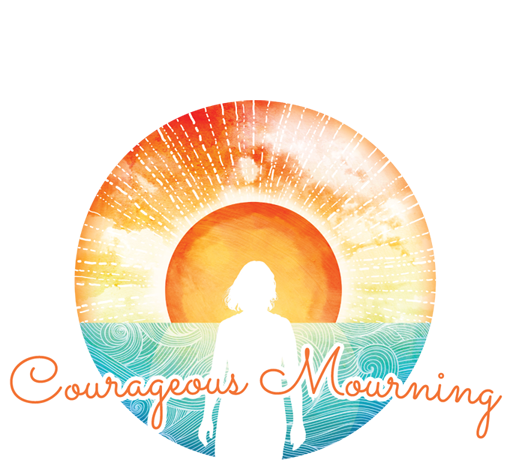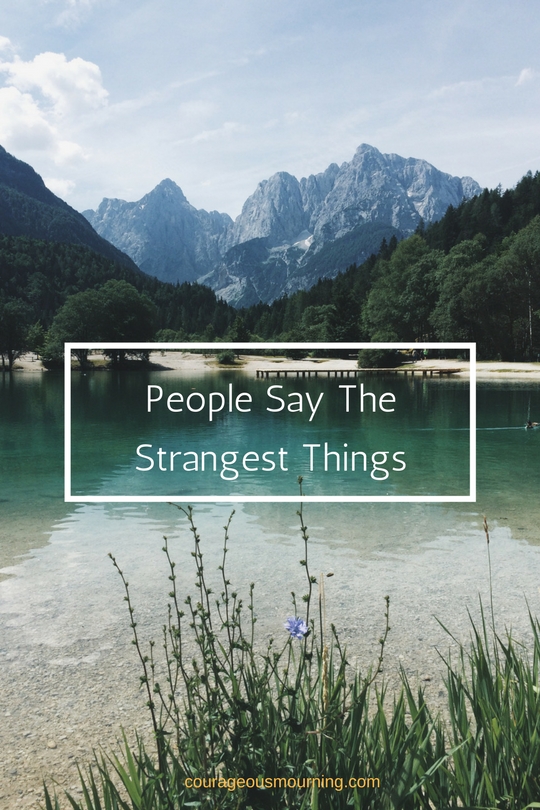Grief and Money
The hard thing happens -- the death, the divorce, the illness, or the job loss.
And then the grief comes.
Just as you are struggling to find your breath in this new landscape, you feel the spiky stalks of anxiety growing in your soul. Sharp-edged and full of fear, this new feeling has you dizzy with panic. Woven into this new landscape is the worry and terror about money.
“How will I survive?”
“Will we lose our home?”
A vision of the pilgrim on the road with her begging bowl clouds your eyes as this terrible potential future fills your mind. I’ve been there - a 32-year-old widow with a 20 day old newborn, a 2-year-old, a house payment and baby shoes to buy - frightened to my core about money.
It doesn’t have to be this way, dear hearts. As Glennon Doyle tells us, “you can do hard things.” And, yes, this is HARD, but you can find your way to peace and empowerment. Take a moment from your grief and consider everything you know and feel about money in general.
First, consider how money is a part of our lives. Growing up, we get some funky messages about money. Maybe money was considered evil, or good, in your family. Maybe you were taught to use money as a tool to achieve your dreams and live your best life. Or were you taught to ignore it, to not dwell on “the darkness of money?”
Like it or not, our relationship to money affects us every day. In fact, It’s hard to escape the everydayness of money. Every trip through the grocery checkout, coffee shop, or visit to Target includes connecting with your money. Pay attention to how you feel about your money, notice what you feel in your body the next time you purchase something. Is there a clenching, anxious feeling in your belly when you swipe your card? Are your palms sweaty, your breathing shallow as you wait for the ‘approved’ sign on the card processor? Do you feel lighter, a temporary reprieve from grief when you enter your pin number and accept the charges?
Money is relational. Imagine it as a human being in your life and let’s call her “Aunt Money.” When she shows up at your dining room table how do you greet her? Do you ignore her completely, shunning her to another room? Do you scream at her, telling her how crazy she makes you feel? Or do you invite her over only once a year, at tax time, and send laser beams of hatred at her?
Why not make peace with Aunt Money? Invite her over for tea and a sweet intimate chat. What changes do you need to make to create a positive relationship with money?
Money connects us to our identity because it’s part of our story. So many feelings that people have out of loss align and tie in with the emotions of panic, crisis trauma. “Who am I and what is my story now?” It’s in your daily life and you can’t escape it, and yet all your routines and habits change with loss. Money is part of your Emotional Relational identity and it represents security and safety.
What we can afford can also affect other relationships. If you can no longer afford to take that five families joint vacation to Bermuda, that means you aren’t connected to those relationships in the same way as before. It’s part of the overall loss you’re experiencing and it’s painful.
Grief is a terribly hard feeling to hold and it’s important to find relief from the seemingly relentless barrage of sorrow and painful feelings. If buying a new bike for your child or buying new clothes for yourself brings you a temporary shelter from the pain - that's ok unless those purchases cause long-term financial distress, or create a crisis later in the month when your mortgage is due. Retail therapy is a real thing and it has its’ place - with balance.
I recommend working with a certified financial planner to help you tease through where you can splurge and use retail therapy and where you need to pay extra careful attention and make smart money decisions. I also recommend signing up for a class to learn about budgeting. You Need A Budget is a wonderful program that has helped people plan and take the reins on their bank accounts. Grief and money are tricky territory. Be sure you are getting lots of support as you navigate these parts of your life.




